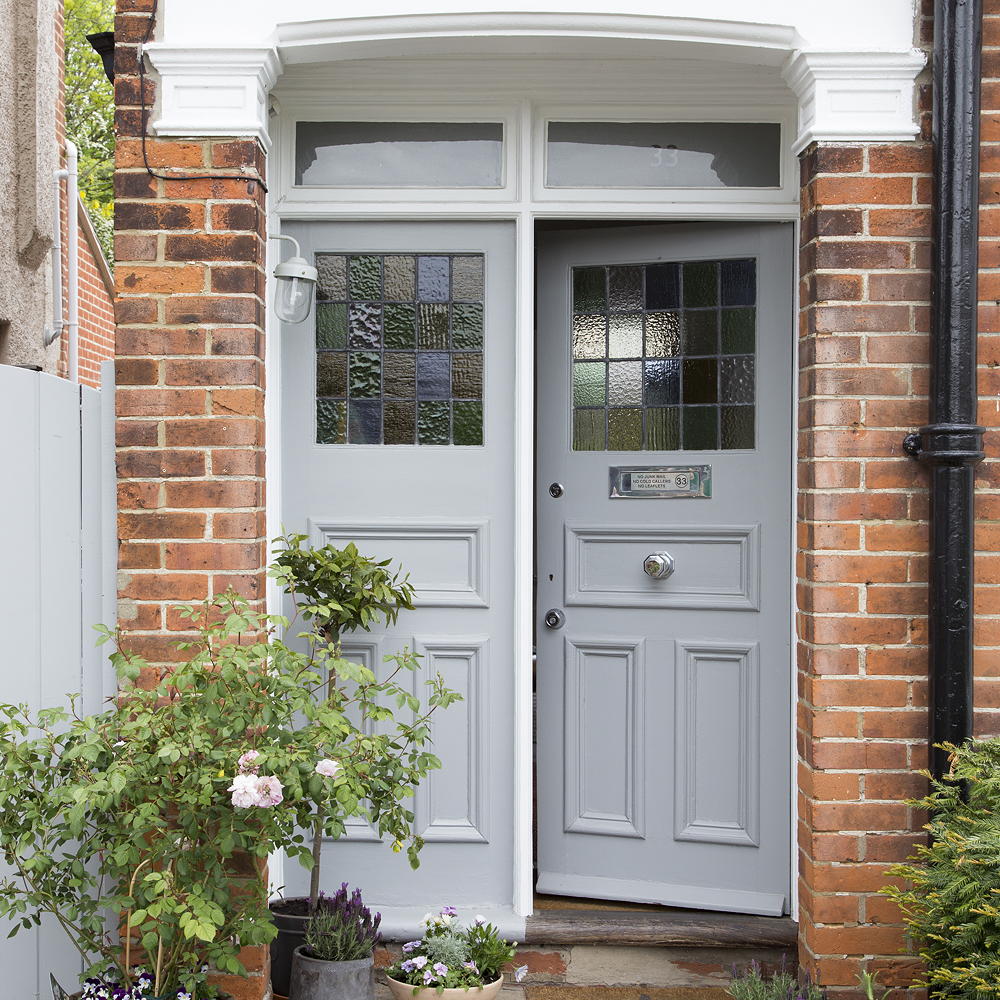Which banks offer 95% mortgages?
A growing number of banks will offer home-buyers with just a 5% deposit a 95% mortgage.
Sign up to our newsletter for style inspiration, real homes, project and garden advice and shopping know-how
You are now subscribed
Your newsletter sign-up was successful
If you have managed to save a small deposit for a house, you might be wondering which banks offer a 95% mortgage. These mortgages were like gold dust to find at one point, but now there are plenty of banks who offer them.
A 95% mortgage refers to the loan-to-value ratio when you buy a house. If you have a 5% deposit, you’ll need to borrow 95% of the property’s value to buy a property.
For example, if you have saved a £10,000 deposit and want to buy a £200,000 home, you’ll need to borrow £190,000 (95% of £200,000).
Your borrowing choices typically become more limited and more expensive the smaller your deposit and therefore the higher your LTV. This is because there is more risk involved for the lender.
Use our mortgage calculator to see how much you might be able to borrow.
Martin Stewart, director at London Money, explains: 'At higher loan-to-value mortgages there is a perceived risk from a lending perspective. There is little commitment (or incentive) for the consumer to maintain payments if something went wrong and the last thing a lender needs is a queue of borrowers returning the keys. Therefore, the criteria, underwriting and affordability assessments are generally more intrusive and rigid when the buyer deposit is small.
'There is also the risk of negative equity with these products. It wouldn’t take much of a negative movement in house prices for the mortgage to be higher than the property value. This will have lots of knock-on effects for the lender and the borrower.'
Sign up to our newsletter for style inspiration, real homes, project and garden advice and shopping know-how

Which lenders offer 95% mortgages?
Some lenders offer 95% mortgages as part of the government’s Mortgage Guarantee Scheme, while others offer them outside of the scheme.
Borrowers will see little difference between mortgages backed by the Mortgage Guarantee Scheme and other 95% mortgages. Everything works exactly the same way: you put down a 5% deposit, then borrow 95% of the property’s value and repay it over the agreed term.
The following banks are taking part in the Mortgage Guarantee Scheme to offer 95% mortgages:
Under the terms of the scheme, these lenders need to include a five-year fixed rate mortgage in their product range.
What is the Mortgage Guarantee Scheme?
The government launched the Mortgage Guarantee Scheme in April 2021 and it’s due to run until December 2022.
The pandemic saw 95% mortgages virtually disappear and the aim of the scheme is to get lenders to participate in this part of the mortgage market again. The government is doing this by ‘guaranteeing’ part of the amount banks lend to mortgage borrowers.
Mark Harris, chief executive of mortgage broker SPF Private Clients, says: 'Lenders purchase the guarantee from the government; this compensates lenders for potential losses should a property be repossessed. Borrowers still have to meet the lender's criteria and affordability assessments.
'The mortgage guarantee scheme has increased the availability of low deposit mortgages. Additionally, it allows non-mortgage guarantee lenders to enter the space knowing they aren’t the only option available and therefore overly exposed.'

Under the Mortgage Guarantee Scheme, borrowers can access mortgages with a 5% deposit, meaning they can borrow at 95% LTV. As with mainstream mortgages, borrowers will need to pass affordability and credit checks to be offered a mortgage.
The scheme reduces the risk of 95% mortgages for participating mortgage lenders, allowing them to offer more mortgages at this LTV and at cheaper rates than previously.
The Mortgage Guarantee Scheme is available to first-time buyers and home movers buying a property to live in (not buy-to-let). Both new build and existing properties priced up to £600,000 are eligible.
Lenders offering 95% mortgages outside of the Mortgage Guarantee Scheme
Mortgage lenders can also offer 95% mortgages separately from the Mortgage Guarantee Scheme. What’s on offer changes all the time but the following lenders offered 95% mortgages at the time of writing:
What kind of rate can I expect to pay for a 95% mortgage?
You’ll normally pay a higher interest rate on a 95% mortgage than you would if you had a bigger deposit.
Mark Harris, chief executive of mortgage broker SPF Private Clients, says: 'The greater your deposit, generally the less you pay for your mortgage. For example, two-year fixes at 70% LTV are available from circa 2.2% (NatWest) while this rises to 2.42% for 90% LTV (NatWest) and 2.69% for 95% (Nationwide).'
For more examples of current rates, Barclays offers a 95% mortgage at 2.77% fixed for two years, with no product fee. Monmouthshire Building Society has a two-year fixed at 2.39% with a £1,149 fee.
Five-year fixed rates tend to be more expensive. Barclays has a five-year fixed at 3.04% (no fee) and Dankse Bank at 2.85% (£999 fee).